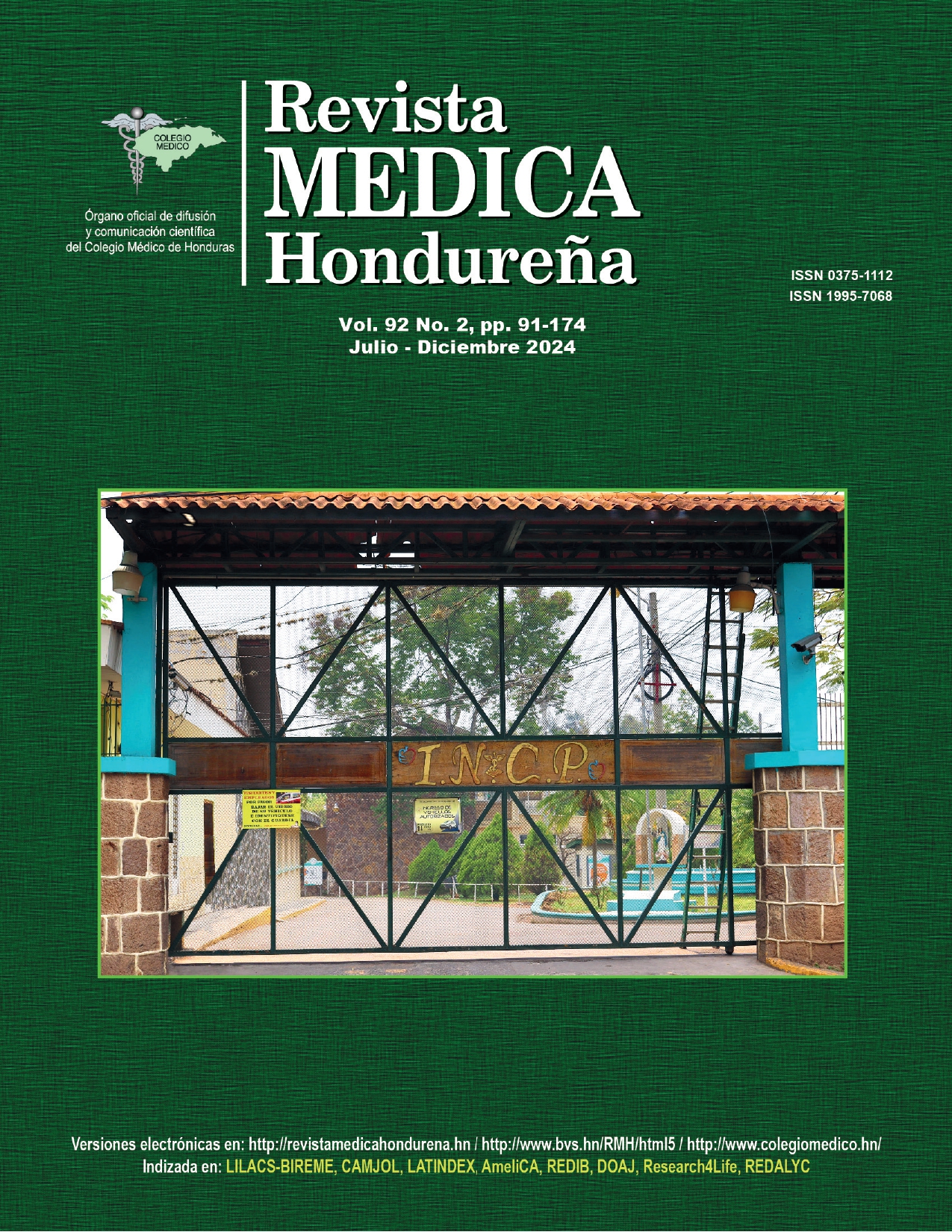Adherence to antihypertensive treatment and quality of life in institutions of secondary level of atention
DOI:
https://doi.org/10.5377/rmh.v92i2.19720Keywords:
Adherence to treatment, Quality of life, HypertensionAbstract
Introduction: Adherence to treatment is a public health problem, with importance in chronic disease therapies. Poor adherence to long-term treatment compromises treatment effectiveness and directly influences quality of life. Objective: To establish the relationship between adherence to treatment and quality of life in adult hypertensive patients in two second level hospitals. Methods: Cross-sectional descriptive study, with analysis of association, non-probabilistic convenience sampling, sample was selected using the Open Epi online programme, resulting in 206 patients who met the inclusion criteria. Adherence was measured with the Morisky-Green-Levine test and quality of life with MINICHAL. Data were analyzed in SPSS Statistic 21.0; univariate analysis, calculating frequencies, percentages and bivariate analysis (association between adherence/adherence factors and quality of life), chi-square test and binary logistic regression model were applied. Ethical approval was obtained. Results: The study population was predominantly female, aged 51-60 years, literate, married, poor. 71.4% (147) were adherent to treatment. The quality of life was medium-high in 80.1% (165). There was an association between adherence and schooling (p<0.01), poverty level (p<0.01), use of other drugs (p<0.01). No association was found between adherence and quality of life (p<0.1) Discussion: Adherence to treatment was high. Adherent patients had a medium-high quality of life, non-adherent patients a low quality of life; patients with polypharmacy, higher education and socioeconomic status had better adherence to treatment.
Downloads
432
Downloads
Published
How to Cite
Issue
Section
License
Copyright (c) 2024 Autores

This work is licensed under a Creative Commons Attribution 4.0 International License.




